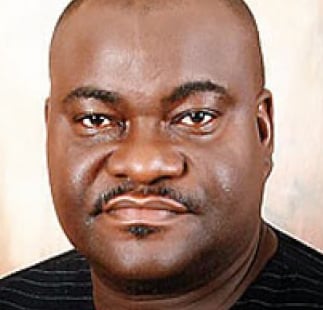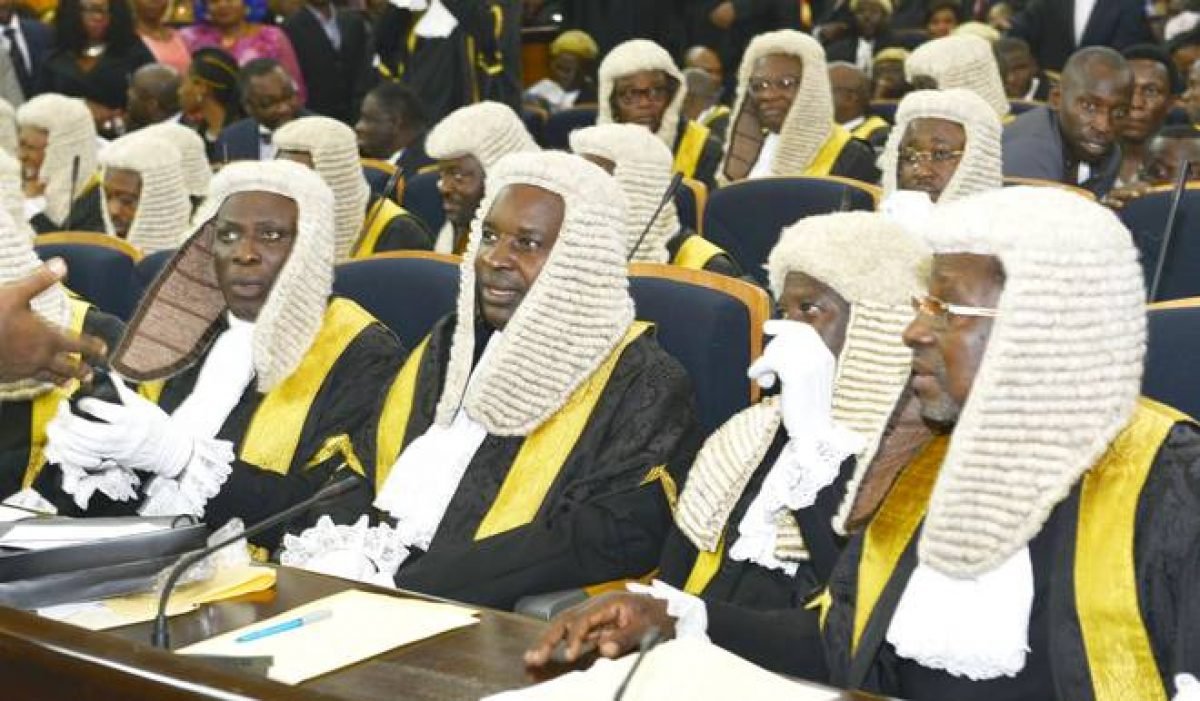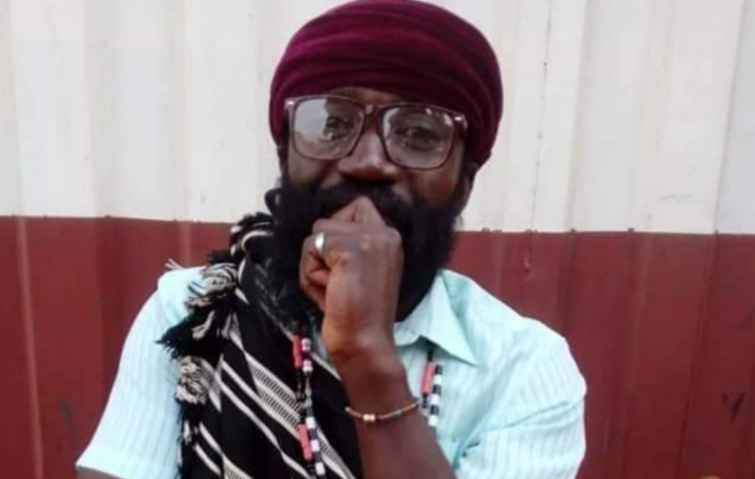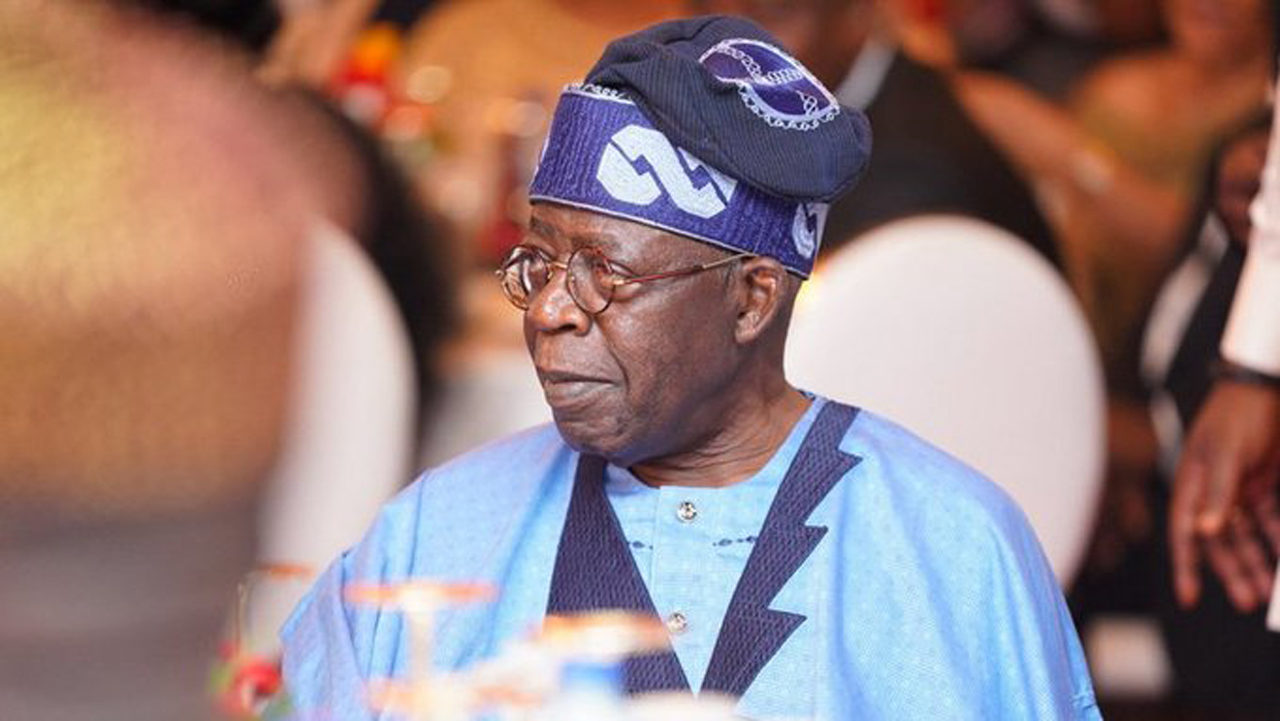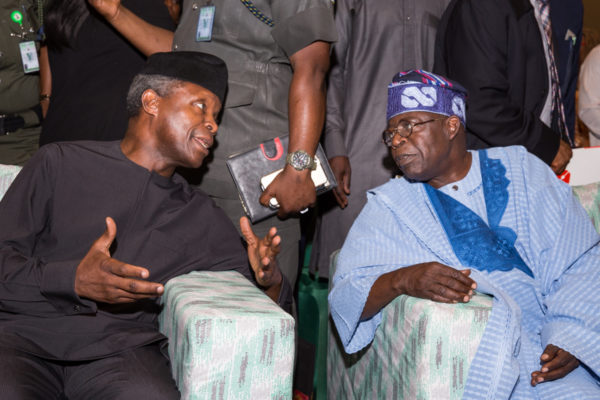If I were to encounter Tunde Ipinmisho, retired general manager in charge of public communication at the Federal Housing Authority, (FHA) or Hakeem Bello, long-serving media adviser to Babatunde Raji Fashola (SAN) former governor of Lagos State and incumbent minister of works and housing, in your presence, I would most certainly be hailed by them with the same alias they have both known me with, for almost four decades now. We all worked as journalists, colleagues, good friends and brothers in the primordial Daily Times of Nigeria Plc, (DTN). Those were good old days when the profession was genuinely engaging, and life was big fun in the newsroom.
Almost everyone had his own nickname, by the way. Our big boss at the time, Yemi Ogunbiyi, managing director of the organisation between 1989 and 1991, came to the organisation with a name he had had from back in time. His facial resemblance with Richard Roundtree, a prominent African American film actor who was prominent in the 1970s, earned him the nickname “Shaft,” which was Roundtree’s stage name, which we mentioned in whispers. We couldn’t spontaneously conjure an alias for our revered professional senior and multivalent mentor, Onyema Ugochukwu, so we just adopted his famous initials which were constant in every official document that passed through him, “OU”.
Dapo Aderinola, who was news editor and subsequently substantive editor of the Daily Times, went by the pseudonym “Africa”. Aderinola once served as editor, Africa Now magazine (West Africa bureau) between 1983 and 1984, from where he procured that necklace. Sub-editing great, Toyin Makanjuola (of blessed memory), who rose to the position of deputy editor of the Daily Times, was simply “Tee Mackay” in the newsroom. Victor Awogu, the editor of one of the magazines in the Daily Times stable and who is now a royal father in Anambra state, was tagged “Savimbi”, after the Angolan revolutionary politician and rebel leader, Jonas Malheiro Savimbi. If you were briefing a senior colleague about the kernel of a piece you wrote and your delivery was interspersed with jaw-breaking expressions, a spontaneous whistle or catcall could emanate from anywhere in the newsroom, followed by the chant lai wowe to the effect that you spoke so much grammar, without reference to any document! Such was the camaraderie and boisterousness of the newsroom.
I joined the Daily Times group when my part of today’s Nigeria was an integral component of the old Kwara state, before the excision of contemporary Kogi west and Kogi central, from Kwara. The otherwise incongruous amalgamation of these subsets with modern-day Kogi east which was taken out of the old Benue state, however, threw up a name for me. And it has stuck ever since. We were in our Agidingbi, Ikeja, Lagos, newsroom on August 27, 1991, the sixth anniversary of the administration of former President Ibrahim Babangida, when a “breaking news” scroll, crawled across the television screen. Nine new states had just been created by military fiat: Kebbi, Jigawa, Kogi, Yobe, Adamawa, Osun, Delta, Anambra and Abia.
Advertisement
I was detailed by the management of the Daily Times, not too long after, to travel to the new Kogi state, to appraise how well the new creation was getting along. I toured Kabba at the heart of Okun land; Okene, the traditional and political headquarters of Ebira land, and Lokoja, the state capital. The Daily Times was a very respectable brand and Danladi Mohammed Zakari, the pioneer military administrator of the state, was glad to receive me. Zakari’s excitement about the potential and the promise which the newborn Kogi state possessed, was very upbeat and infectious. He celebrated the overflowing human capital, the limitless natural resources and the abounding agrarian endowments as ingredients that will propel the state into the future. I appropriated one of his statements in the course of our one-on-one dialogue, as the headline for the verbatim transcript, which was published by the Daily Times, among other reports I filed. The caption of that interview published November 1, 1991, was: ‘Kogi Will Be Another Lagos’.
And so, I got back to Agidingbi, brimming with the excitement of someone who had just downed a few litres of the popular juice drink, ‘Happy Hour’, tinctured with a dash of ‘Fearless’. I preached the gospel of the new Kogi state, a latent Eldorado, with exceptional pentecostal fervour. The ever ingenious newsroom wasted no time in rechristening me “Kogi o!” or “Kogi Baba,” as the case may be, for my Kogicentricism. And the name has remained ever since! I wouldn’t share my other aliases among other sections of my friends, just yet. Recall the clown in the trending online skit who says: “If you don’t gerrit, forget abou’rit!” By dint of providence, I was opportune, subsequently, to contribute my bit as a communicator and media manager, in the regimes of three successors to Zakari, notably Abubakar Audu, Paul Uzoanya Ndimele Omeruo and Bzigu Lassa Afakirya, respectively. How well Kogi has fared 30 years post-creation, particularly in recent years, will engage our attention some other time.
My serial disillusionment with the mollusc-paced, amoeboid configured, Aminian-styled development of the state, however, has momentarily slanted my focus. My part of Kogi state, has over the years, especially since the advent of democratic governance in 1999, been serially undermined and mistreated by successive governments. Crowded out of meaningful representation at the level of the state, it was a magnanimous President Olusegun Obasanjo, who granted a reprieve to Okunland between 1999 and 2007, by ensuring that every minister who served in his cabinet was chosen from Okunland. This was an intentional decision by a strong-willed leader, to assuage our holistic exclusion, in the intricate geopolitical balancing of the state.
Advertisement
At the level of governance in Kogi state per se, the Okun cameo appearance in Government House, Lokoja, was only between 2012 and 2016. This was when Yomi Awoniyi, scion of the venerated Sunday Bolorunduro Awoniyi, served as deputy governor to governor Idris Wada. By the time the incumbent government of Yahaya Bello ends in January 2024, Okunland would have effectively been shut out of governance for the more recent eight successive years at the state and federal levels from the period 2016 to 2024.
If you add the four years of the Audu/Patrick Adaba administration; to the over eight years of the Ibrahim Idris/Phillip Salawu dispensation, and Bello’s eight, minus the Awoniyi milieu, Okunland would have been pitilessly barricaded from Lugard House, Lokoja, for 20 years under pseudo-democratic rule. To be sure, Bello, the incumbent, has worked with two deputies from Kogi east within the period, of his rulership namely, Simon Achuba and Edward Onoja, respectively. To this extent, Okunland wasn’t even recognised to play second fiddle as it were. Indeed, the two ministers who represented Kogi state within the first four years of the Muhammadu Buhari administration, (James Eneojo Ocholi, SAN of blessed memory, and Stephen Ocheni), were from Kogi east. There is also street talk in Kogi, about an ongoing arrangement by Bello to clone himself in the 2023 governorship election by throwing up one of his kinsmen as his successor, so that Kogi central would have closed the gap considerably, between it and Kogi east, with regards to the duration served by both zones on levers of governance.
The Kogi dream of three decades ago, painfully, sorely, very sadly, has not evolved the way it was envisioned. I wonder how Danladi Zakari an incurable optimist would be feeling today. There are, however, bright spots in places, though, which illuminate the overarching gloom, from time to time. The legal practitioners’ privileges committee, (LPPC), announced, Thursday, October 21, 2021, that 72 senior lawyers would, about six weeks later, be conferred with the rank of senior advocate of Nigeria (SAN). I am not an attorney. But I have friends in their ranks.
As the social media went into overdrive that day, attempting to unearth who was from where among the new nominees, it turned out, heartily, that two of the new silks, Eyitayo Ayokunle Fatogun and Ayo Abraham Olorunfemi, were from Okunland. And just in case one was in any doubt, invites were subsequently sent to dignitaries from the homesteads and local government areas of the beneficiaries, for post-investiture receptions, on Wednesday, December 8, 2021. Fatogun hails from Isanlu, headquarters of Yagba east local government area of Kogi state, while Olorunfemi is from Aiyetoro-Gbedde, a very important town in Ijumu LGA. Ibrahim Tanko Muhammad, chief justice of Nigeria, had formally conferred the 72 senior lawyers with the rank of SAN at the main courtroom of the Supreme Court of Nigeria earlier that day.
Advertisement
The reception for Fatogun, one of the 16 members of the Abuja branch of the Nigerian Bar Association (NBA), admitted into the body of SANs that day within the precincts of the International Conference Centre (ICC), Abuja, was attended by a broad array of dignitaries, from Okunland and beyond. Olasehinde Kumuyi, former chief judge of Ondo state, chaired the event, which also featured the traditional ruler of Fatogun’s hometown of Isanlu, Moses Ejembi, the Agbana of Isanlu, as well as senator representing Kogi west, Smart Adeyemi and the member representing Yagba federal constituency in the house of representatives, Leke Abejide.
Principal partner of Adegboyega Awomolo and Associates, the law firm where Fatogun has worked all his life after being called to bar, rising to the position of managing partner five years ago, Adegboyega Awomolo (SAN) was at the head of an impressive list of SANs who attended the event. These include Alex Izinyon (PhD), Yusuf Alli and Goddy Uche. Former Kano state governor, Rabiu Musa Kwankwaso, equally graced the event. Adedayo Kayode, an attorney and director at the Independent Corrupt Practices Commission (ICPC) and Patrick Daniels, also a director at the Assets Management Corporation of Nigeria (AMCON), were also at the programme.
The Red Carpet Hall, Oniru-Lekki, Lagos, hosted the reception for Ayo Olorunfemi, the second Okun man, inaugurated into the revered Body of Silks, on the same day. Senior advocates of Nigeria like Femi Atoyebi and his wife; Joseph Mbadugha; Olukayode Enitan; Babajide Koku and Olusegun Fabunmi, joined in felicitating with Olorunfemi at the programme. A.O. Faji of the federal high court; managing director of Leaders and Company Ltd, publishers of THISDAY, Eniola Bello; presiding chaplain of the Chapel of Christ the Light Church, Lagos, Ayo Olu Ayodotun and Obasina Ogunbiyi, a retired major general, were present. Abdulwaheed Yusuf, Doyin Afuna, Obatayo Aina, Tobi Balogun, Dolapo Aromire, and many friends, colleagues and professional associates of Olorunfemi, equally graced the event. Wednesday, December 8, 2021, was one day that Okunland truly bathed and basked beyond the typical haze and dust of the season’s harmattan, preceding the yuletide.
Instructively, Fatogun who will be 45 on June 1, 2022, studied law at the University of Ilorin, graduating in 2002. He thereafter attended the Nigerian Law School and was called to bar in 2003. Upon the completion of the mandatory one year National Youth Service Corps, (NYSC) programme in Sokoto in 2004, he joined the services of Adegboyega Awomolo and Associates in 2005. He served in the Ilorin, Lagos and Abuja offices of the Awomolo law firm, becoming the managing partner in 2017. He is a member of the NBA, the International Bar Association (IBA) and the Chartered Institute of Arbitrators in the United Kingdom (UK).
Advertisement
Olorunfemi, who will be 56 on August 5, 2022, obtained his law degree from the Ahmadu Bello University (ABU), Zaria and a masters degree in the same profession from the University of Lagos, (Unilag). He is capped with over 30 years of experience in legal practice, having handled over 50 contentious matters, including landmark cases. He has served in various law firms in Kaduna, Ilorin and Lagos. He has held the positions of joint head of chambers, partner and is presently managing partner of Femi Atoyebi and Company, a position he has held since 2006. He is a chartered fellow of the Nigerian Institute of Management (NIM) and was inducted into the hall of fame for Admiralty and Maritime Law by the American Biographical Institute in 2019.
Fatogun and Olorunfemi thus join the roll call, of very eminent and respectable senior advocates of Nigeria (SAN) and members of the Inner Bar who hail from Okunland. They include Bayo Ojo, FCIArb, CON; John Olushola Baiyeshea; Duro Adeyele; Bisi Soyebo (Mrs) and Wole Agunbiade. This is not forgetting Malomo Awomolo (Mrs), Joash Amupitan (PhD) and Ayo Asala. For the avoidance of doubt, the quality and aggregate of SANs from Okunland alone outstrip the figures from some sections of Nigeria. Along with our kinsmen who by dint of hard work, perspiration, ingenuity and resilience continue to hoist aloft the banner of Okunland across professions, vocations and endeavours everywhere in the world, these distinguished compatriots will burnish the reputation of our people and assuage our collective despair and apprehension about the future of our homeland in the scheme of things.
Advertisement
Olusunle (PhD) poet, author, journalist and scholar, is a member of the Association of Communication Scholars and Practitioners of Nigeria (ACSPN)
Advertisement
Views expressed by contributors are strictly personal and not of TheCable.
